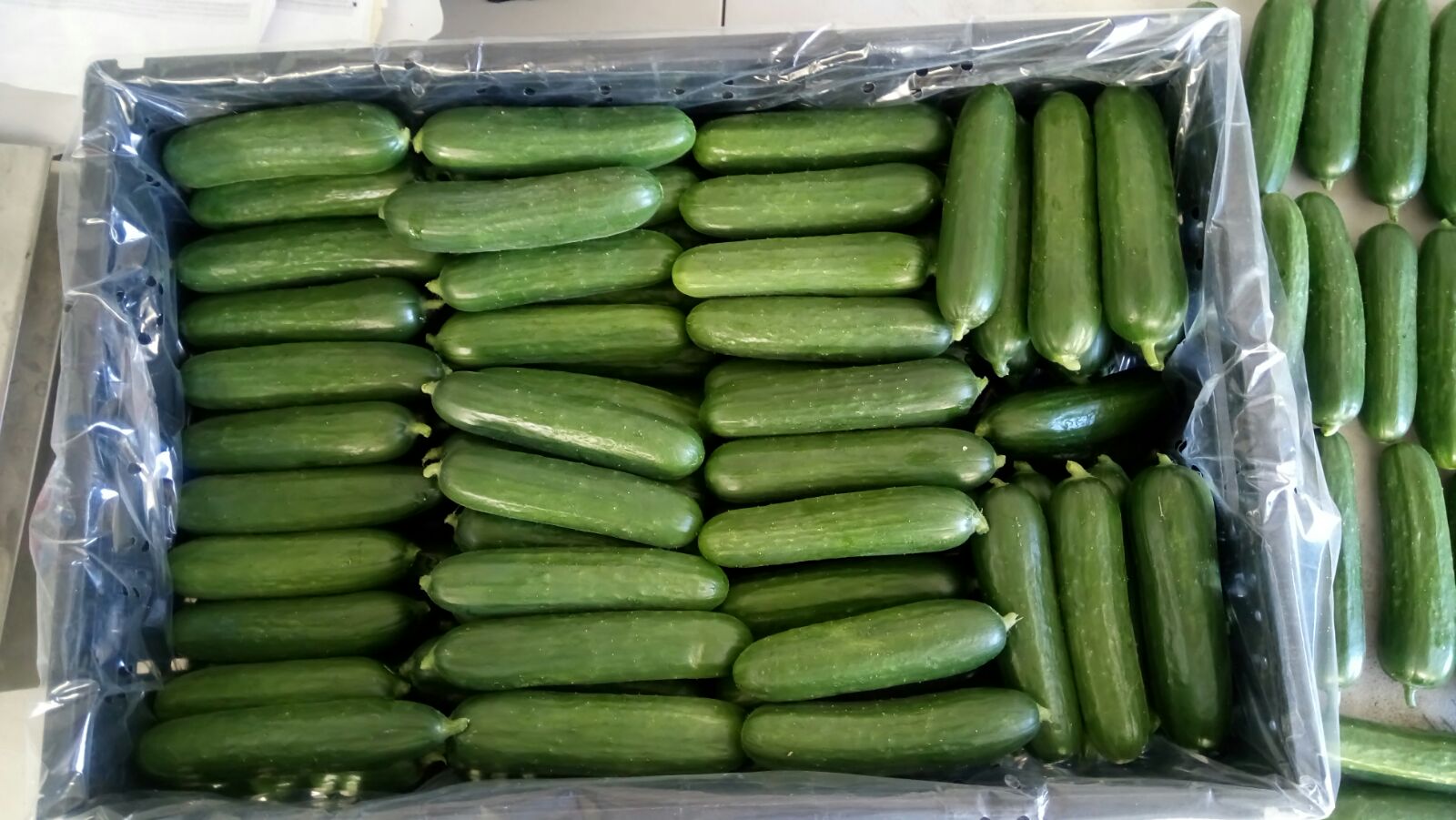

Articles
How To Store Persian Cucumbers
Modified: August 17, 2024
Learn the best techniques for storing Persian cucumbers in this informative article. Find out how to keep them fresh and crisp for longer periods, ensuring the highest quality and taste.
(Many of the links in this article redirect to a specific reviewed product. Your purchase of these products through affiliate links helps to generate commission for Storables.com, at no extra cost. Learn more)
Introduction
Persian cucumbers, also known as Persian gherkins or mini cucumbers, are a versatile and refreshing vegetable that is a favorite among many. With their crisp texture and mild flavor, these cucumbers are perfect for salads, sandwiches, and even pickling. However, if you find yourself with an abundance of Persian cucumbers and want to store them for later use, it’s important to know the best methods to maintain their freshness and quality.
In this article, we will explore various storage methods for Persian cucumbers, including refrigeration, freezing, pickling, dehydrating, and canning. We will also provide tips on how to properly store these cucumbers to ensure maximum freshness and flavor.
Whether you grow your own Persian cucumbers or purchase them from a local market, knowing how to store them properly will not only help to extend their shelf life but also allow you to enjoy their delicious taste all year round!
Key Takeaways:
- Preserve the crispness and flavor of Persian cucumbers by refrigerating, freezing, pickling, dehydrating, or canning them. Enjoy their versatility in dishes all year round with proper storage techniques.
- Select fresh cucumbers, follow proper storage methods, and experiment with pickling, freezing, or dehydrating to savor the delightful taste and texture of Persian cucumbers in various dishes.
Read more: How To Store Cucumber
Best Storage Methods for Persian Cucumbers
When it comes to storing Persian cucumbers, there are several methods you can choose from depending on your preference and the intended use of the cucumbers. Here are some of the best storage methods:
- Refrigeration: One of the simplest and most commonly used methods to store Persian cucumbers is by refrigeration. Cucumbers are sensitive to heat and can start to lose their crispness and become soft if left at room temperature for too long. To refrigerate Persian cucumbers, simply place them in a perforated plastic bag or wrap them loosely in a damp paper towel and store them in the crisper drawer of your refrigerator. This can help prolong their shelf life and maintain their crisp texture for up to a week.
- Freezing: Freezing is a great option if you have a surplus of Persian cucumbers and want to preserve them for an extended period. Start by washing and slicing the cucumbers into desired shapes, such as rounds or spears. Blanch the cucumber slices in boiling water for a few minutes, then transfer them to an ice bath to cool rapidly. Drain the cucumbers, place them in freezer-safe bags or containers, label them with the date, and store in the freezer. Frozen cucumbers are best used in cooked dishes, as they may become soft upon thawing.
- Pickling: Pickling is a classic method of preserving cucumbers and can enhance their flavor. To pickle Persian cucumbers, start by washing and trimming the ends. Place the cucumbers in sterilized glass jars along with your preferred pickling spices, such as dill, garlic, and peppercorns. In a separate pot, heat a mixture of vinegar, water, sugar, and salt until it boils. Pour the hot brine over the cucumbers, ensuring they are fully submerged. Seal the jars and let them cool before storing them in the refrigerator. Allow the cucumbers to marinate for at least a week before enjoying their tangy taste.
- Dehydrating: Dehydrating cucumbers can be a great way to create crispy and flavorful snacks. Thinly slice the cucumbers and arrange them in a single layer on dehydrator trays. Set the dehydrator to a low temperature, usually around 125°F (52°C), and allow the cucumbers to dry for several hours until they are crisp and no longer moist. Once dehydrated, store the cucumber chips in airtight containers or resealable bags in a cool, dark place. They can be eaten as a healthy snack or used as a crunchy addition to salads and other dishes.
- Canning: Canning is a preservation method that allows you to enjoy the taste of fresh Persian cucumbers even during the off-season. Start by washing and sterilizing glass canning jars and lids. Pack the cucumbers into the jars and fill them with a brine made from vinegar, water, sugar, and salt. Remove any air bubbles, wipe the rim of the jars, and seal them tightly. Process the jars in a water bath canner according to the specific instructions for your altitude and jar size. Properly canned cucumbers can last for several months, allowing you to savor their crispness all year long.
These storage methods offer various options for preserving the freshness and flavor of Persian cucumbers. Choose the method that works best for you based on your preferences and the intended use of the cucumbers. By utilizing these techniques, you can enjoy the delightful taste of Persian cucumbers long after their initial harvest!
Method 1: Refrigeration
Refrigeration is one of the simplest and most effective methods to store Persian cucumbers and maintain their freshness and crispness for an extended period. The cool temperature of the refrigerator helps slow down the enzymatic activity in the cucumbers, thereby preserving their texture and flavor.
Here are the steps to properly refrigerate Persian cucumbers:
- Start by selecting firm and unblemished cucumbers. Avoid choosing cucumbers that have soft spots or discoloration as they may spoil more quickly.
- Wash the cucumbers under cold running water to remove any dirt or residue from the surface.
- You have two options for storing refrigerated cucumbers:
- a) Place the cucumbers in a perforated plastic bag: This allows some airflow while preventing excessive moisture loss.
- b) Wrap the cucumbers loosely in a damp paper towel: The moisture from the towel helps maintain the cucumbers’ freshness.
- Store the cucumbers in the crisper drawer of your refrigerator. This compartment helps regulate humidity levels and maintains a cool temperature.
- Avoid storing cucumbers near fruits that release ethylene gas, such as apples or bananas. Ethylene can accelerate the ripening process and cause the cucumbers to spoil more quickly.
- Check the cucumbers periodically for any signs of spoilage. If you notice any soft spots, mold, or unpleasant odor, discard the affected cucumbers to prevent spoilage from spreading to the rest of the batch.
Refrigerated Persian cucumbers can usually remain fresh for up to a week. However, it’s important to note that cucumbers may lose their crispness over time, especially if they are not wrapped or stored properly.
When you’re ready to use refrigerated cucumbers, simply remove them from the refrigerator, unwrap or unbag them, and rinse them under cold water before incorporating them into your desired dishes. Remember to cut off any damaged or discolored parts before consuming the cucumbers.
Refrigeration is a convenient and practical way to store Persian cucumbers, ensuring that you have a fresh supply on hand whenever you need them. Follow the proper storage guidelines, and you’ll be able to enjoy the crisp and refreshing taste of these cucumbers for an extended period.
Method 2: Freezing
If you have an abundance of Persian cucumbers and want to preserve them for a longer period, freezing is an excellent storage method. Freezing cucumbers can help maintain their flavor and texture, making them a convenient ingredient to use in various dishes, such as soups, stews, and smoothies.
Follow these steps to properly freeze Persian cucumbers:
- Start by selecting fresh and firm cucumbers. Avoid using cucumbers that are overly ripe or have soft spots.
- Wash the cucumbers under cold running water to remove any dirt or residue.
- Peel the cucumbers if desired. While the skin is safe to eat and contains valuable nutrients, peeling can enhance the texture and appearance of the frozen cucumbers.
- Slice the cucumbers into your preferred shapes, such as rounds or spears.
- Blanch the cucumber slices in boiling water for 2-3 minutes. Blanching helps to preserve the color and texture of the cucumbers and also helps to kill any bacteria on the surface.
- Transfer the blanched cucumber slices to an ice bath to cool rapidly. This stops the cooking process and helps the cucumbers retain their crispness.
- Drain the cucumber slices well to remove excess moisture.
- Place the cucumber slices in freezer-safe bags or airtight containers. If using bags, squeeze out any excess air before sealing to minimize freezer burn.
- Label the bags or containers with the date of freezing.
- Store the cucumbers in the freezer, making sure they are arranged in a single layer or stacked neatly to prevent sticking together.
Frozen Persian cucumbers can last in the freezer for up to 10-12 months. However, their texture may soften upon thawing, which makes them best suited for cooked dishes rather than eating raw.
When you’re ready to use the frozen cucumbers, simply remove the desired amount from the freezer and thaw them in the refrigerator overnight or under cold running water. Avoid thawing at room temperature, as this can lead to a mushy texture. Once thawed, the cucumbers are ready to be added to your favorite recipes.
Freezing Persian cucumbers is a convenient way to extend their shelf life and have them readily available for future use. Whether you’re adding them to cooked dishes or incorporating them into refreshing smoothies, frozen cucumbers can be a versatile ingredient that adds a touch of freshness to your meals.
Method 3: Pickling
Pickling Persian cucumbers is a traditional and popular method of preserving their freshness and enhancing their flavor. Pickled cucumbers, also known as gherkins, make a delicious and tangy addition to sandwiches, salads, and appetizers.
Follow these steps to properly pickle Persian cucumbers:
- Start by selecting small and firm cucumbers. The smaller cucumbers are preferred for pickling as they tend to have a crisper texture.
- Wash the cucumbers thoroughly under cold running water to remove any dirt or residue.
- Trim the ends of the cucumbers. You can leave them whole or cut them into spears or rounds, depending on your preference.
- Prepare sterilized glass jars for pickling. Wash the jars and lids in hot soapy water or run them through the dishwasher to ensure they are clean and free from any bacteria.
- Add your preferred pickling spices and flavorings to the jars. Common options include dill, garlic cloves, mustard seeds, peppercorns, and red pepper flakes. Be creative and experiment with different flavor combinations.
- Place the cucumbers in the jars, leaving a bit of space at the top.
- In a separate pot, combine vinegar, water, sugar, salt, and any other desired seasonings or spices. Bring the mixture to a boil, stirring until the sugar and salt have dissolved.
- Pour the hot brine over the cucumbers in the jars, ensuring they are fully submerged.
- Seal the jars tightly with the lids and let them cool to room temperature.
- Once cool, store the jars in the refrigerator for at least a week to allow the cucumbers to marinate and develop their flavors. The longer you let them sit, the more intense the flavor will be.
- After the pickling process is complete, your cucumbers are ready to be enjoyed. They will keep in the refrigerator for several months.
These pickled Persian cucumbers can be served as a side dish, added to sandwiches and burgers, or used as a tasty garnish. The tangy and briny flavor of pickles adds a delightful contrast to a variety of dishes.
Experiment with different herbs, spices, and flavoring options to create unique pickled cucumber recipes that suit your taste preferences. Enjoy the crisp texture and zesty taste of homemade pickled Persian cucumbers throughout the year!
Store Persian cucumbers in the refrigerator in a perforated plastic bag to maintain their crispness. Avoid storing them near ethylene-producing fruits to prevent premature ripening.
Read more: How To Store A Persian Rug
Method 4: Dehydrating
Dehydrating Persian cucumbers is an excellent way to create crispy and flavorful cucumber chips that can be enjoyed as a healthy snack or used as a crunchy addition to salads and other dishes. Dehydrating removes the moisture from the cucumbers, resulting in a concentrated flavor and a satisfying crunch.
Follow these steps to properly dehydrate Persian cucumbers:
- Start by selecting firm and fresh cucumbers. Avoid using cucumbers that have soft spots or are overly ripe.
- Wash the cucumbers under cold running water to remove any dirt or residue.
- Slice the cucumbers into thin rounds or slices. Aim for uniform thickness to ensure even drying.
- Arrange the cucumber slices in a single layer on dehydrator trays. Leave a little space between the slices to allow for proper airflow.
- Set the dehydrator temperature to around 125°F (52°C), or follow the manufacturer’s instructions for dehydrating cucumbers.
- Dehydrate the cucumber slices for several hours or until they are completely dry and crisp. The exact time will depend on the thickness of the slices and the humidity in the air.
- Once the cucumber slices are dehydrated, remove them from the dehydrator and let them cool completely.
- Store the cucumber chips in airtight containers or resealable bags in a cool, dark place. This will help maintain their crunchiness and prevent them from absorbing moisture.
Dehydrated Persian cucumber chips can be enjoyed on their own as a healthy snack or used in various recipes. They add a crispy texture and a burst of flavor to salads, soups, and even as toppings for yogurt or dips.
Before consuming or using the dehydrated cucumber chips, you can rehydrate them slightly by soaking them in water for a few minutes. This will soften them slightly and restore some of their original texture.
Dehydrating Persian cucumbers is a simple and effective way to create a tasty and nutritious snack. Enjoy the satisfying crunch and concentrated flavor of homemade cucumber chips at any time of the year!
Method 5: Canning
Canning Persian cucumbers is an excellent method for preserving their crispness and flavor, allowing you to enjoy these cucumbers throughout the year. Canning involves sealing cucumbers in jars along with a brine, which helps to maintain their texture and extend their shelf life.
Follow these steps to properly can Persian cucumbers:
- Start by selecting small and firm cucumbers for canning. Avoid using cucumbers that have soft spots or are overly ripe.
- Wash the cucumbers thoroughly under cold running water to remove any dirt or residue.
- Prepare the canning jars by washing them in hot soapy water or running them through the dishwasher. Rinse well and place the jars in a pot of boiling water to sterilize them. Keep the jars hot until you are ready to use them.
- Prepare the brine by combining vinegar, water, sugar, salt, and any desired pickling spices or herbs in a large pot. Bring the mixture to a boil, stirring until the sugar and salt have dissolved.
- Pack the cucumbers into the hot, sterilized jars, leaving a ½-inch headspace at the top.
- Pour the hot brine over the cucumbers in the jars, ensuring they are fully submerged. Remove any air bubbles by sliding a sterilized non-metallic utensil along the inside of the jar.
- Wipe the rim of each jar with a clean, damp cloth to remove any brine residue or debris. Place the lids on the jars and tighten the bands until they are fingertip tight, ensuring a good seal.
- Process the jars in a water bath canner. Submerge the jars in boiling water, making sure they are covered by at least 1 inch of water. Process the jars for the recommended time according to your altitude and jar size. Check reputable canning resources for specific processing times.
- After the processing time is complete, carefully remove the jars from the canner and let them cool on a towel-lined countertop.
- Check the jars for proper seals. The lids should be concave and should not flex when pressed. Label the jars with the date and store them in a cool, dark place.
Canned Persian cucumbers can last for a year or more when stored in a cool, dark location. They make a delicious addition to sandwiches, salads, or enjoyed straight out of the jar as a tangy snack.
Before consuming the canned cucumbers, inspect the jars for any signs of spoilage, such as bulging lids or unpleasant odors. If you notice any signs of spoilage, discard the contents of the jar.
Canning is a reliable and rewarding way to preserve the crispness and flavor of Persian cucumbers. Enjoy the taste of these homemade pickles all year long!
Tips for Properly Storing Persian Cucumbers
To ensure the maximum freshness and flavor of your Persian cucumbers, follow these tips for proper storage:
- Choose fresh and firm cucumbers: Select cucumbers that are crisp and free from soft spots or blemishes. Fresh cucumbers will have a vibrant color and a firm texture.
- Store in the refrigerator: Persian cucumbers are best stored in the refrigerator to help retain their crispness and slow down the ripening process. Keep them in the crisper drawer or in a perforated plastic bag to maintain proper humidity levels.
- Avoid storing near ethylene-producing fruits: Keep your cucumbers away from fruits like apples and bananas, as they release ethylene gas which can speed up the ripening process of the cucumbers.
- Wrap in a damp paper towel: If you prefer not to use a plastic bag, wrap Persian cucumbers loosely in a damp paper towel before storing them in the refrigerator. The moist towel helps to maintain their hydration and crispness.
- Check for spoilage: Regularly inspect your stored cucumbers for any signs of spoilage, such as soft spots, mold, or an unpleasant odor. Discard any cucumbers that show signs of spoilage to prevent the spread to other cucumbers.
- Freeze excess cucumbers: If you have an abundance of Persian cucumbers, consider freezing them for long-term storage. Blanch sliced cucumbers before freezing to preserve their color and texture. Frozen cucumbers are best used in cooked dishes.
- Try pickling: Pickling is a popular method for preserving cucumbers. Experiment with different pickling spice blends and store the pickled cucumbers in sterilized jars in the refrigerator for tangy and flavorful additions to your meals.
- Dehydrate for cucumber chips: Dehydrating Persian cucumbers can create delicious and crispy cucumber chips. Slice the cucumbers and dehydrate them until they are completely dry. Store the dehydrated chips in airtight containers to maintain their crunchiness.
- Canning for long-term storage: Canning is a great option for preserving the quality of Persian cucumbers. Follow proper canning procedures to safely seal the cucumbers in jars with a brine solution. Canned cucumbers can last for a year or more.
- Label jars and containers: Whether you choose to freeze, pickle, dehydrate, or can your Persian cucumbers, label them with the date to keep track of their freshness and ensure you use them within the recommended time frame.
By following these tips, you can extend the shelf life of your Persian cucumbers and enjoy their crispness and flavor long after their harvest. Properly storing your cucumbers will help you bring the taste of fresh cucumbers to your meals, no matter the season!
Conclusion
Properly storing Persian cucumbers is essential to maintain their freshness, crispness, and flavor. Whether you have a surplus of cucumbers from your garden or want to stock up on this versatile vegetable, there are several effective storage methods to choose from.
Refrigeration is a simple and convenient way to keep Persian cucumbers fresh for up to a week. By following the proper steps of washing, packaging, and maintaining the right temperature and humidity, you can enjoy these cucumbers in salads, sandwiches, or as a refreshing snack.
If you’re looking to extend the shelf life of your cucumbers, freezing is an excellent option. Blanching the cucumbers before freezing helps preserve their texture, and they can be used in various cooked dishes, adding a burst of freshness and crunch.
Pickling offers a tangy and flavorful way to store Persian cucumbers. Prepare jars with a brine solution, and enjoy the pickled cucumbers as a side dish, sandwich topping, or part of a traditional charcuterie board.
Dehydrating is a unique method that transforms Persian cucumbers into crispy and delicious cucumber chips. Dehydrated cucumbers can be enjoyed as a healthy snack or used to add a delightful crunch to salads and other recipes.
Canning is a reliable long-term storage method that allows you to savor the taste of fresh Persian cucumbers throughout the year. By following proper canning procedures and sealing the cucumbers in jars with a brine, you can enjoy the crispness of cucumbers in soups, stews, and other culinary creations.
Remember, however you choose to store your Persian cucumbers, always select fresh and firm cucumbers, properly clean them, and monitor for any signs of spoilage. Labels and dates help you keep track of when your cucumbers were stored, ensuring their timely use.
With these storage methods and tips in mind, you can preserve the quality and taste of Persian cucumbers, allowing you to enjoy their refreshing crunch and versatility in your favorite dishes throughout the year. So go ahead, get creative, and make the most of these delicious cucumbers!
Frequently Asked Questions about How To Store Persian Cucumbers
Was this page helpful?
At Storables.com, we guarantee accurate and reliable information. Our content, validated by Expert Board Contributors, is crafted following stringent Editorial Policies. We're committed to providing you with well-researched, expert-backed insights for all your informational needs.
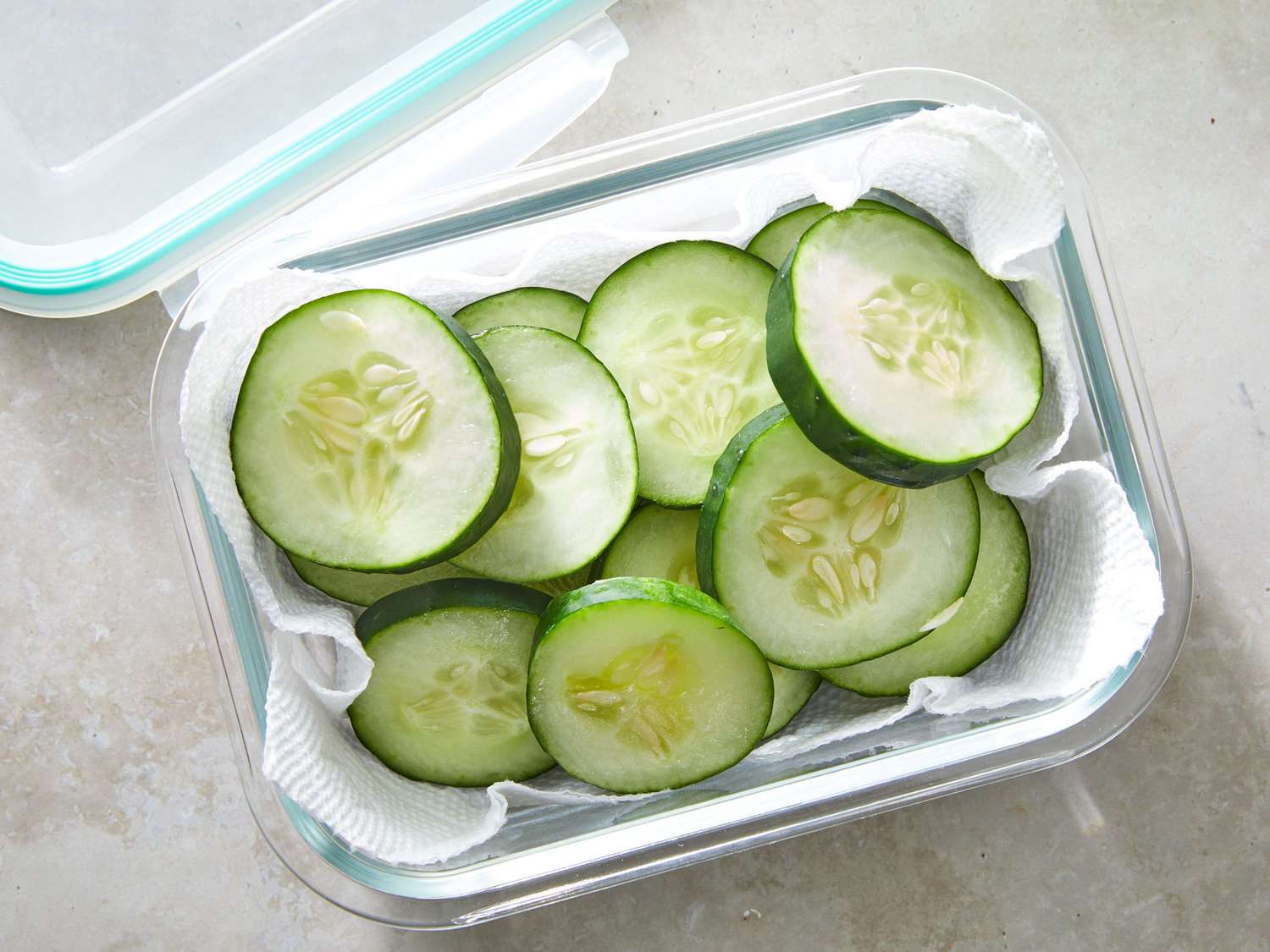
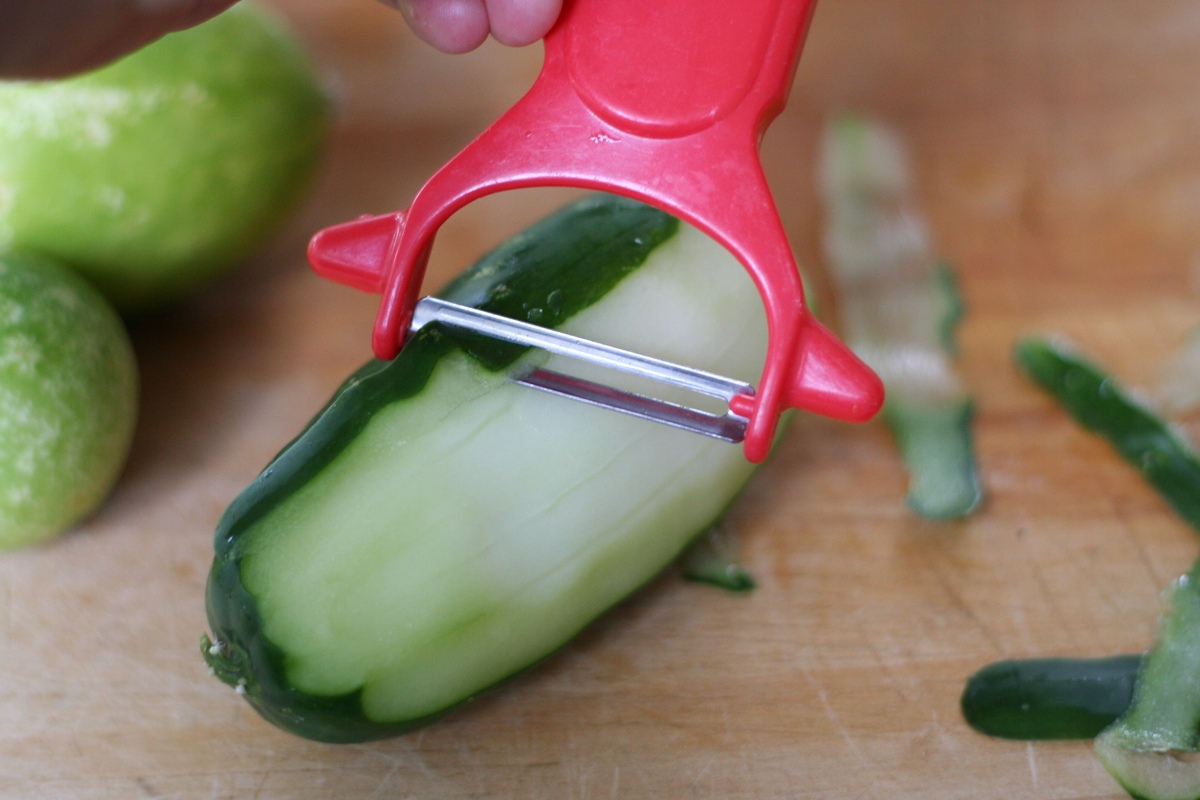
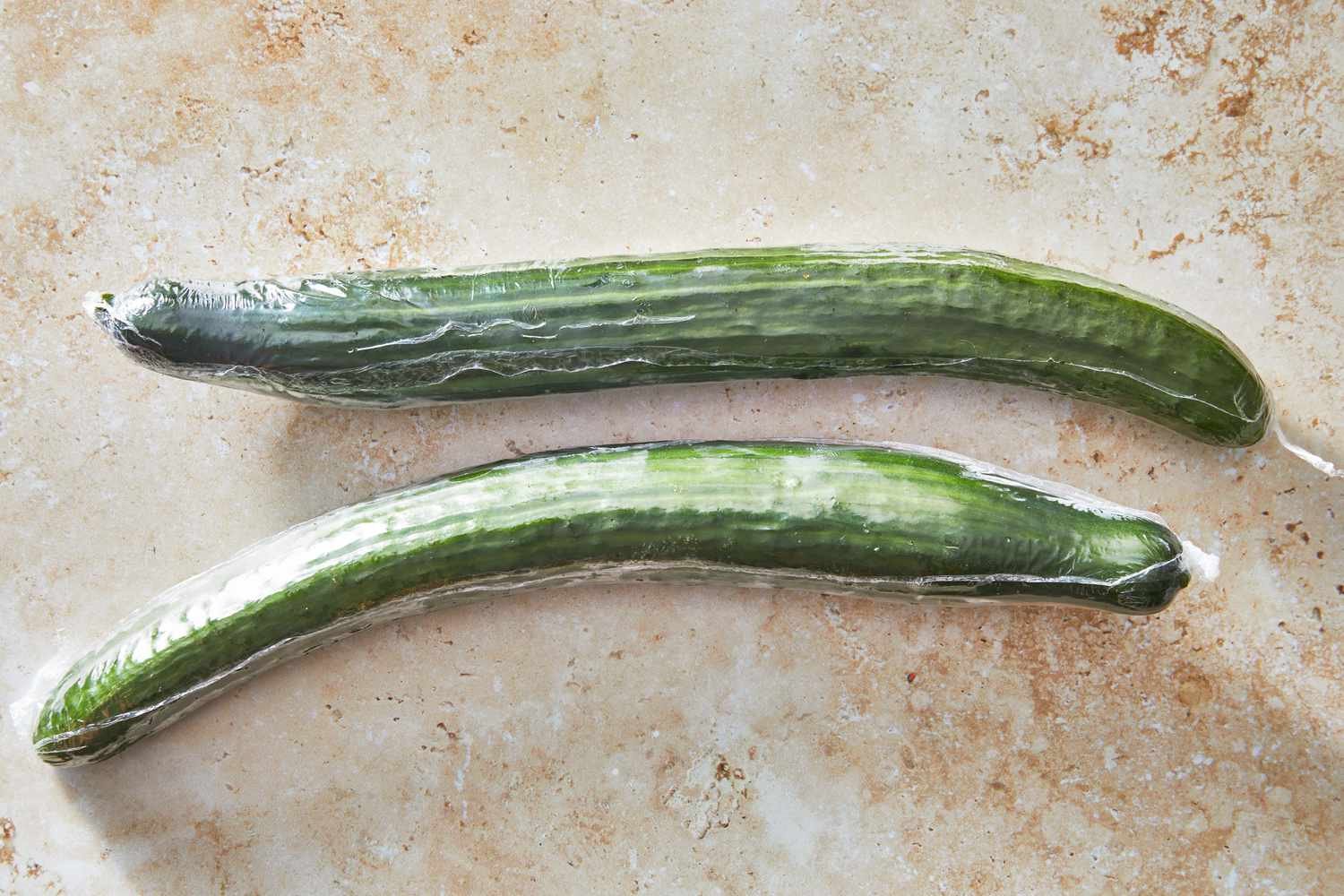
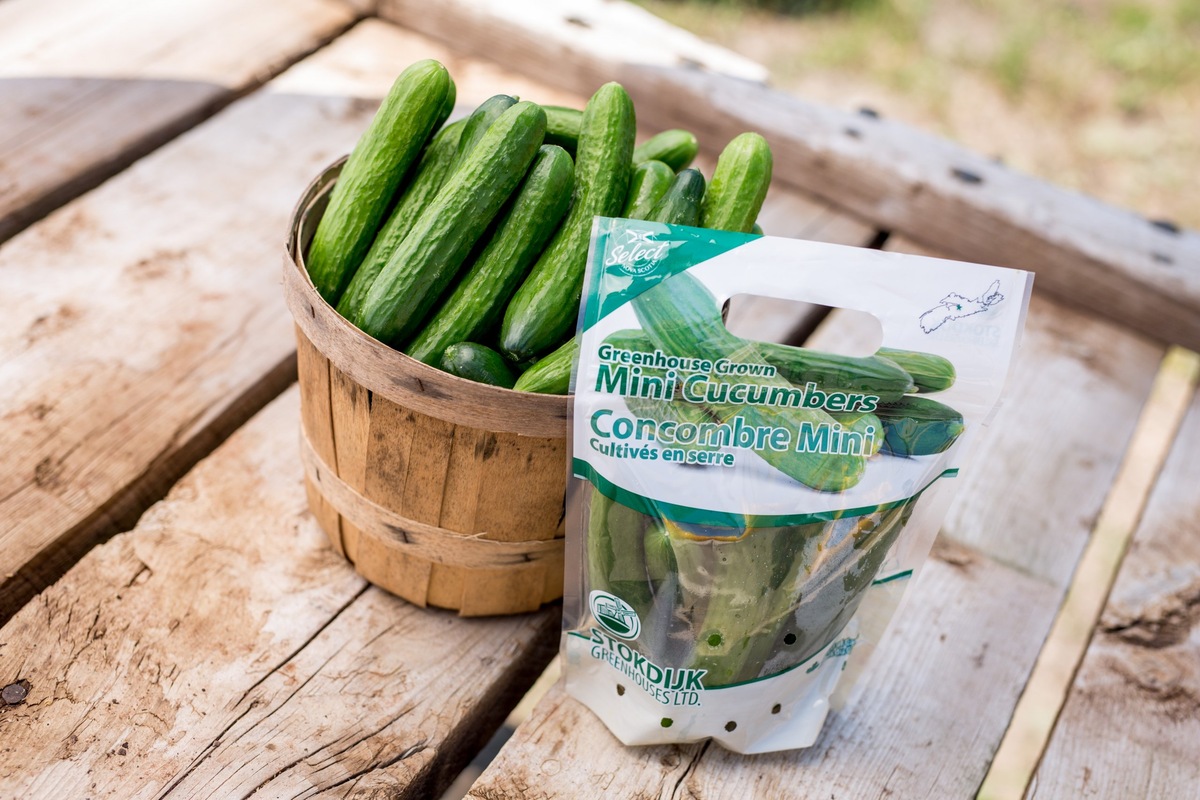
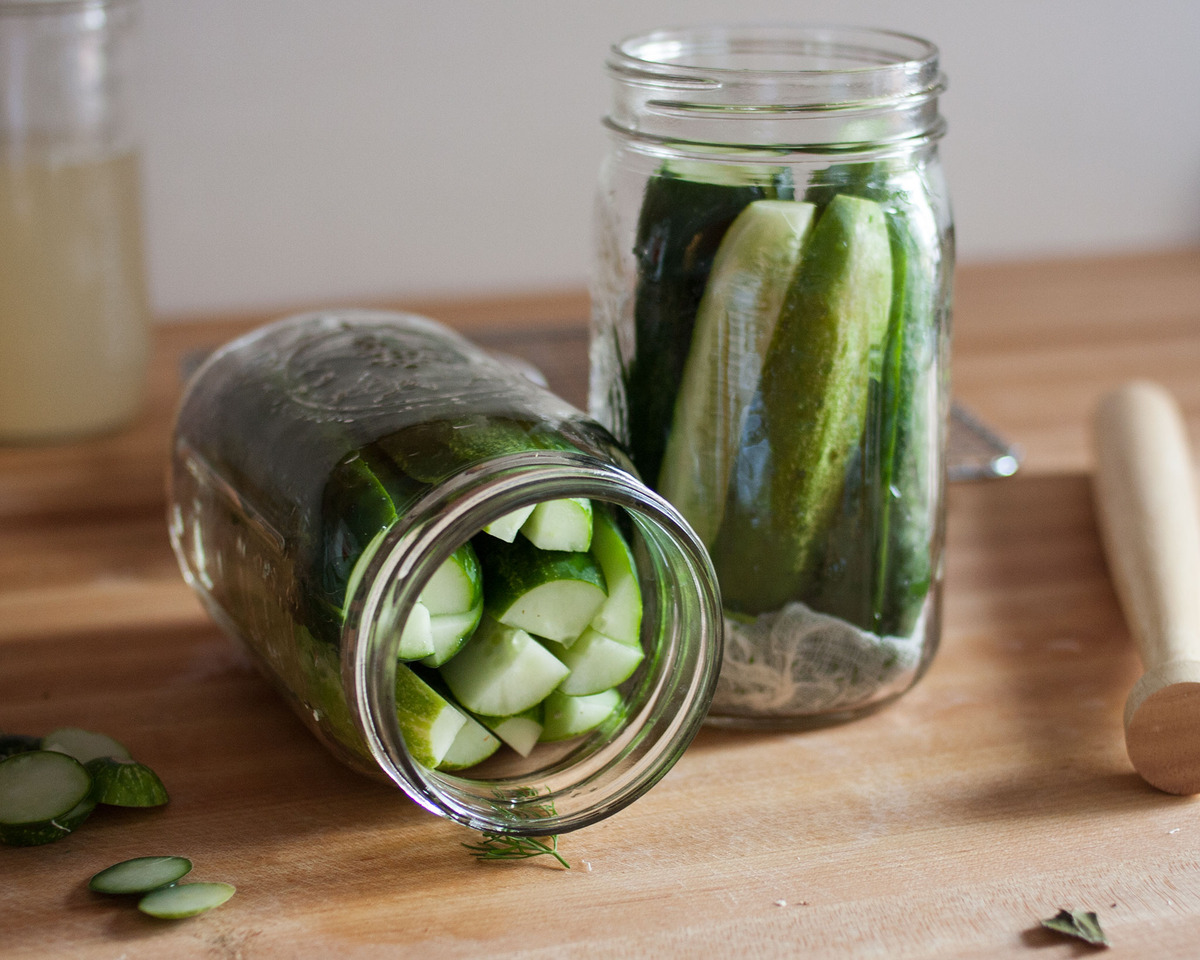
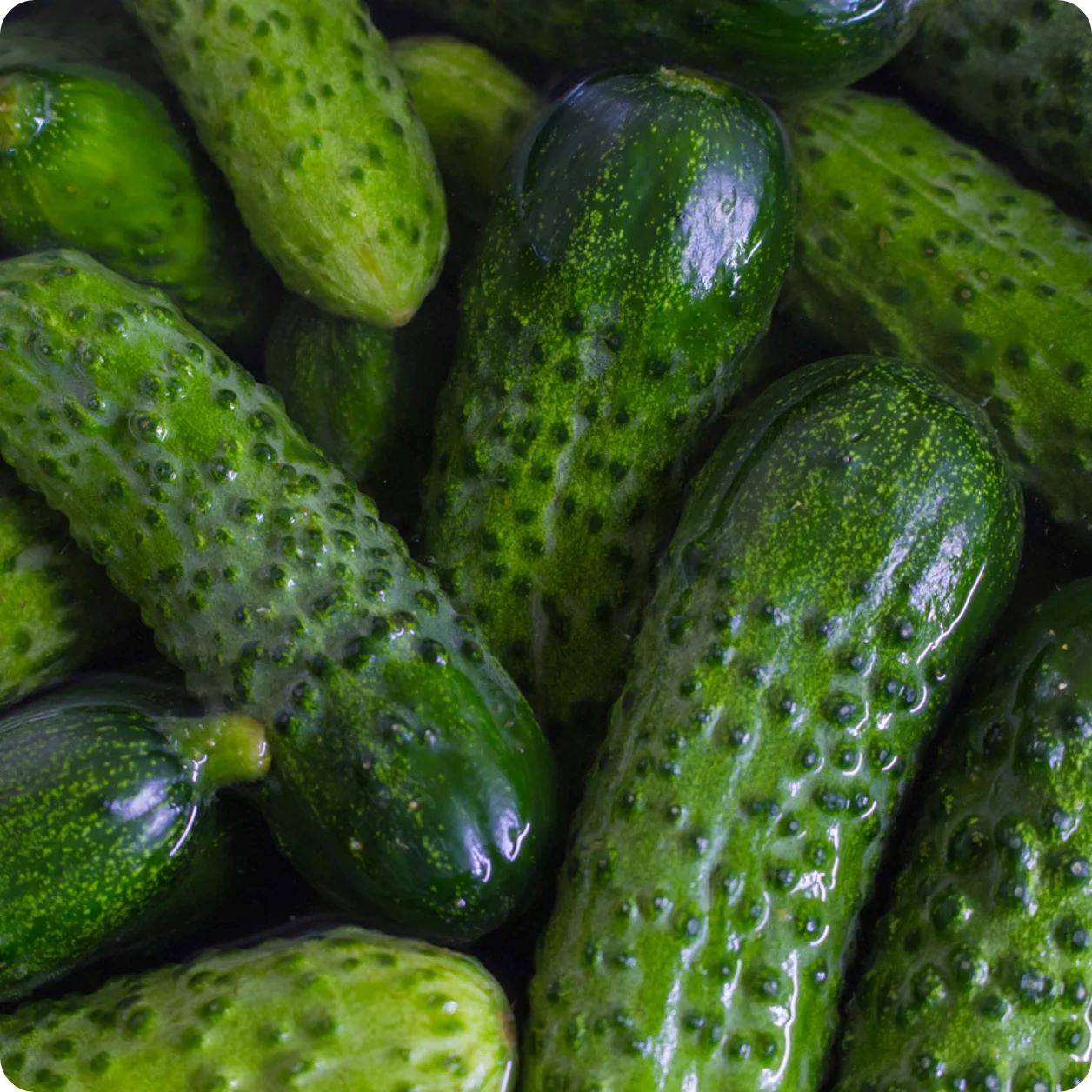
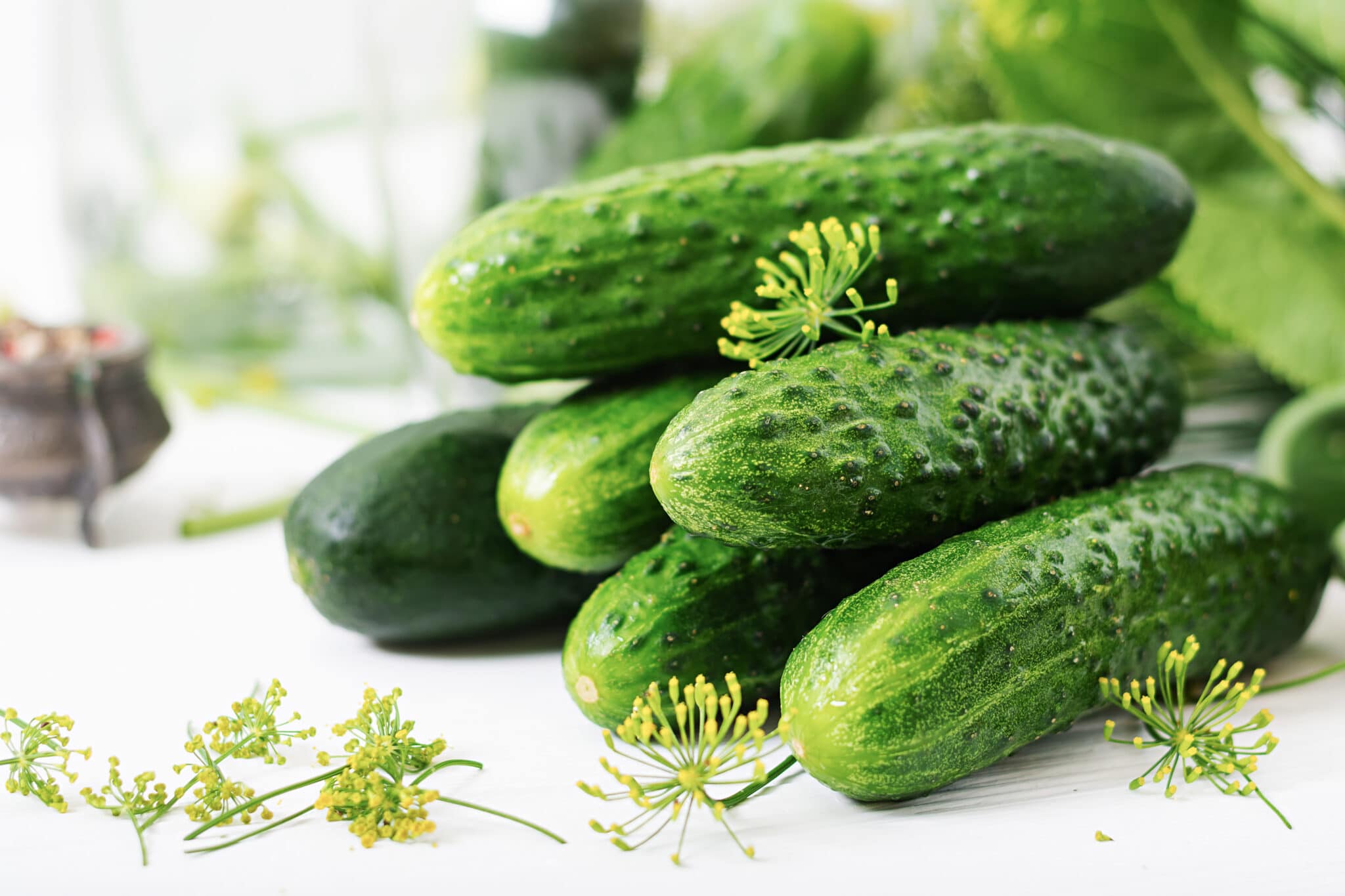
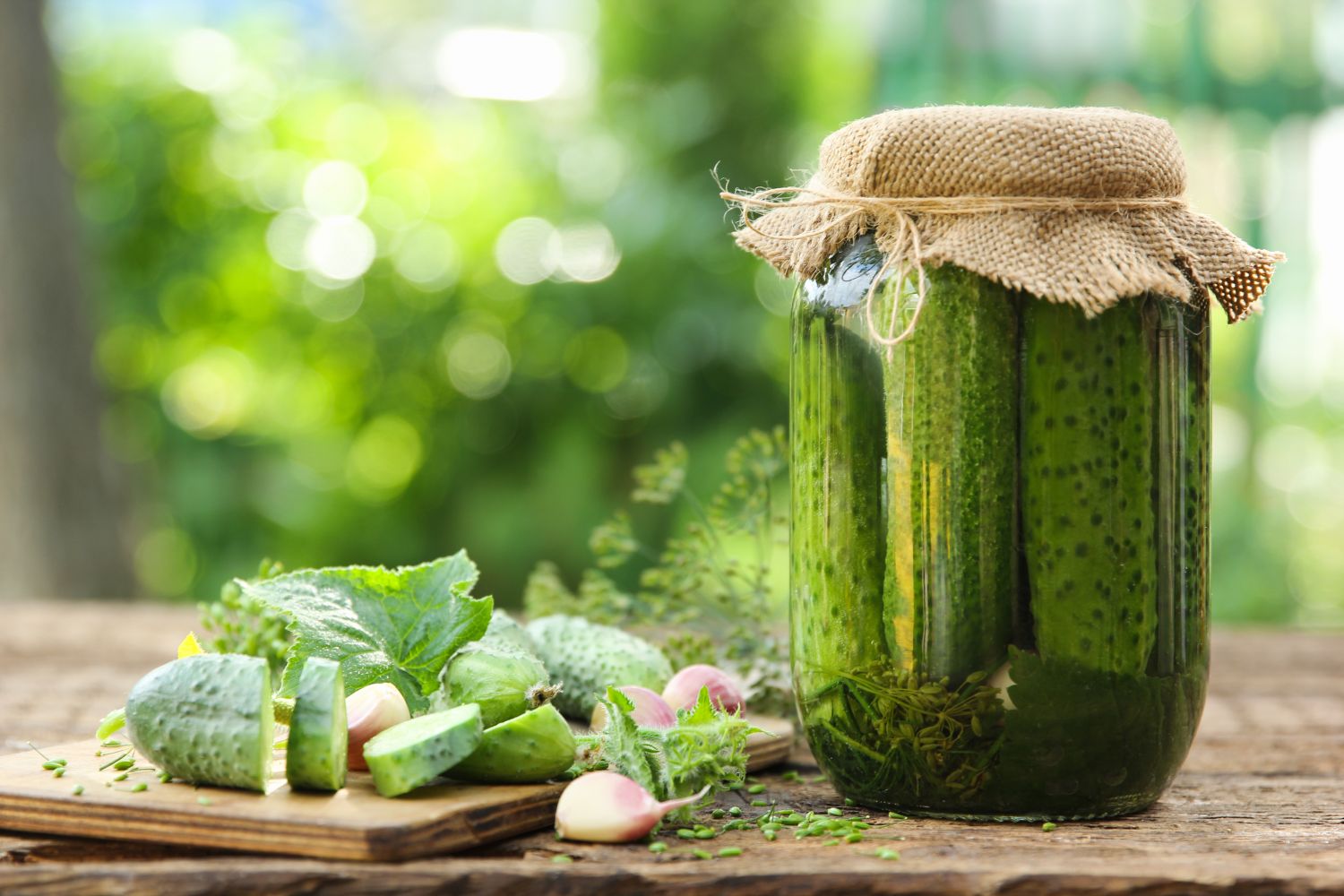
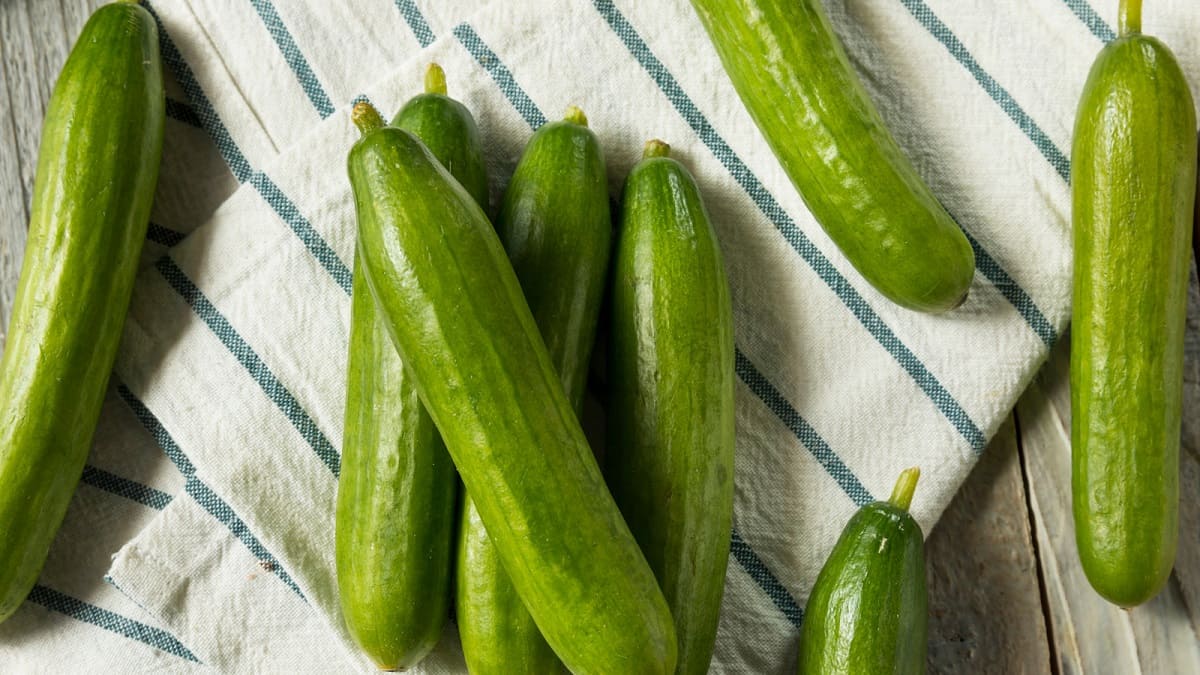
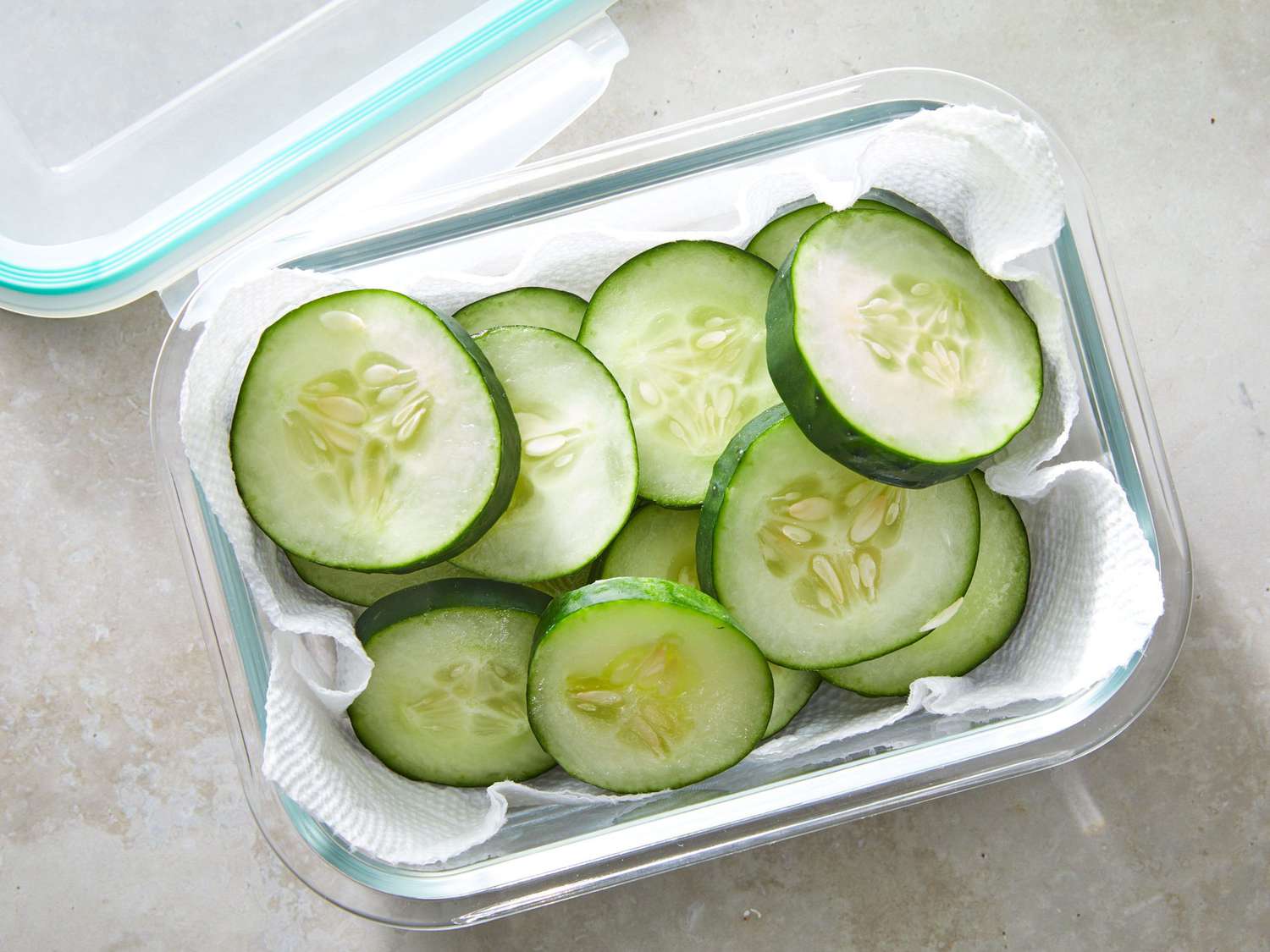

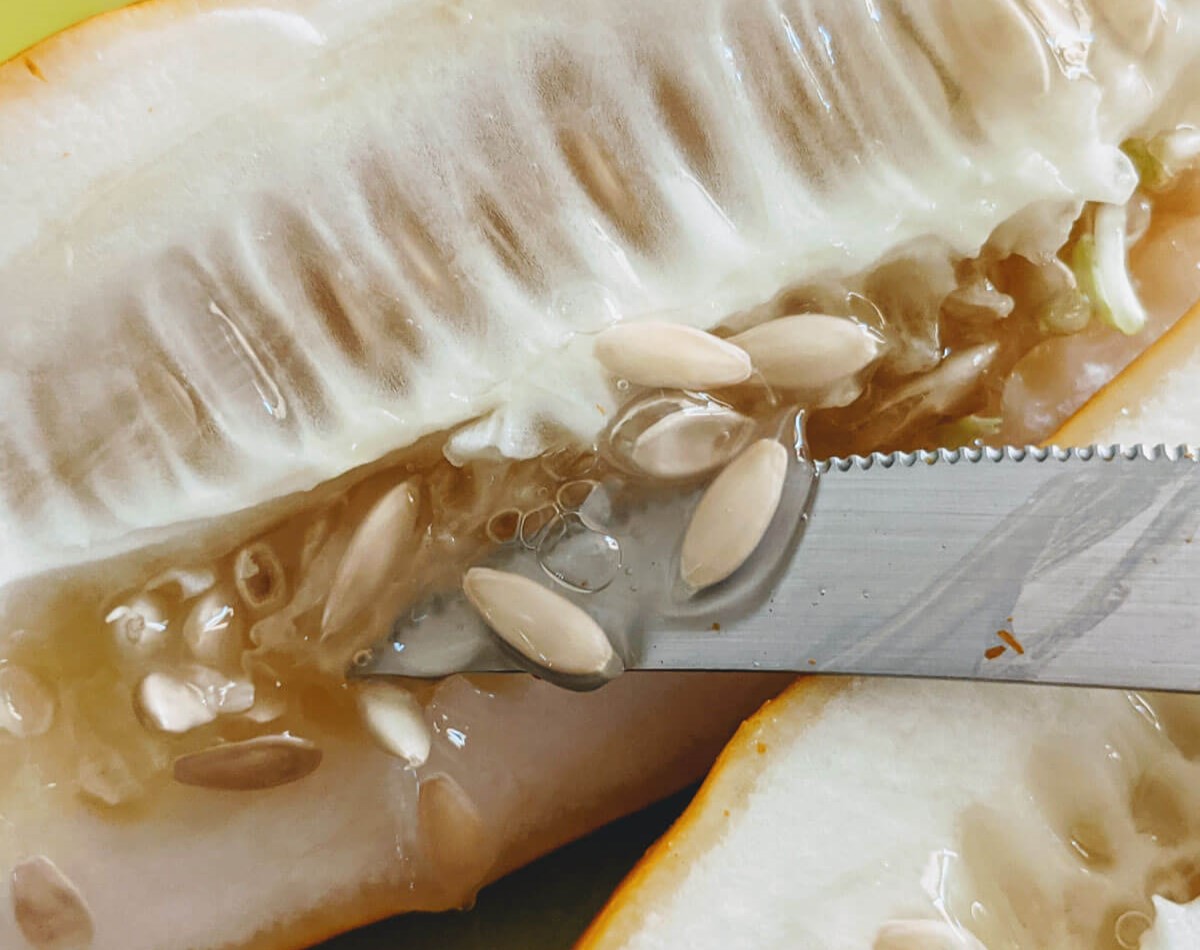



0 thoughts on “How To Store Persian Cucumbers”